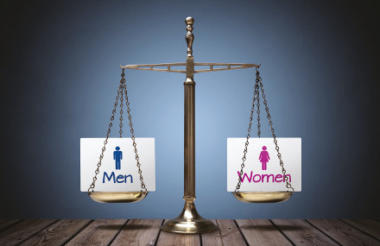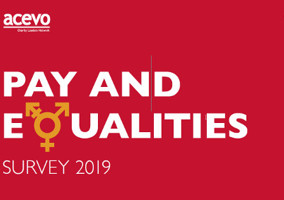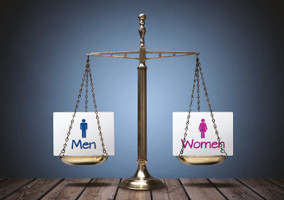Almost 70 per cent of chief executives at the country’s largest charities are men, according to the latest survey from Charity Finance.
Charity Finance, published by Civil Society Media, found that 67 out of the 96 chief executives currently in post at the largest 100 charities (by income) are male. The full report will be published online and in print next week with the September issue of the magazine.
Some 29 charities had female chief executives and five had vacant positions, with Caroline Stevens due to take up her role as chief executive of the National Autistic Society in November.
The figures include Rufus Norris and Lisa Burger, who are joint chief executives of the Royal National Theatre.
This is the highest number of women chief executives recorded in the survey, up from the 27 in place in 2017.
However, it contrasts greatly with figures for the wider charity sector in ACEVO’s Pay and Equalities Survey 2019, which estimated that the number of female chief executives in the sector overall had risen to 63 per cent.
Kristiana Wrixon, head of policy at ACEVO, said: “This suggests that gender representation in charities tapers the larger the organisation is.
“However, similar to our recent findings, what improvements have occurred on gender representation appear to be broadly limited to white, non-disabled women.”
BAME chief executives
Out of the 67 chief executives who gave their ethnicity, 62 gave their ethnicity as white, which is just under 93 per cent.
Of these, 59 gave their ethnicity as white British, with two putting white European and one saying white other.
Out of the five BAME chief executives (seven per cent of those that answered), three gave an Asian ethnicity – Sri Lankan Tamil, Kashmiri and Asian other – while two said they had African ethnicity. All five work at charities in the top 50 and four of them are male.
Similarly, 93 per cent of the 528 respondents to ACEVO's Pay and Equalities Survey 2019 said they had white ethnicity.
Wrixon said it is “unacceptable” that just seven per cent of CEOs at the largest 100 charities are BAME. “As the #CharitySoWhite campaign recently demonstrated, the entire social sector has a long way to go before it is equitable and inclusive.
“This is further evidence that we need to accelerate progress across the board on diversity and inclusion in the social sector so that our organisations and our work is representative and inclusive of the communities we serve.”
This year’s results also show charity chief executives are at their youngest since 2007, with an average age of 53 years and 11 months. Their experience in the role is the same as in the 2017 survey, averaging four years and seven months.
Civil Society Media's Charity Finance magazine will publish the full findings of the Chief Executives Survey 2019 next week. Subscribe to Charity Finance online.
|
Related articles












